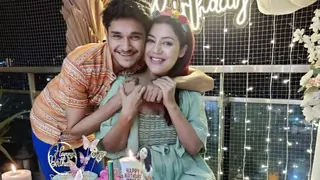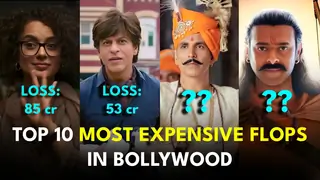Originally posted by: Samanalyse
Thanks for the great response!
For you and all the people who agreed with you later in the post (LiveLife321, Itelidevara, sajnifaby), I am addressing these questions in one go:
I think I have a very different interpretation of Dev's character from the beginning of the show, which allows me to see his behaviour now as very consisitent to character. It's true that Dev is a very intelligent person, and as such should be able to apply his sharp mind to household problems, but that is not the case because there is also an element of choice. He could have also applied his intelligence to learning the chores Sona recommended, but he chose to believe that they were outside his capability. From a young age, Ishwari taught Dev to apply his brains towards academic and thereby monetary success; the rest was her's and Neha's responsibility. So Dev grew up learning how to be a brazen workaholic, who used the power of his money and success to get whatever he wanted. Remember, this is a guy who believed at the beginning of the show that there was no emotion that money couldn't buy.
With Kushal Roy, he didn't have to know the guy to use his usual scare tactics, and Kushal scared easy. Dev was always in control. Ranveer was just Neha's happiness in bodily form; Dev didn't really read anything else except his poverty, and he judged him on that basis until Ranveer took the job; he did that for Neha, so he beccame a good guy. As long as Ranveer did Neha and Dev's bidding, Dev would consider him a "good guy." Remember, he was also willing to "buy" her that first groom, who was clearly a spineless jellyfish. If he were such a good judge of character, he wouldn't have thrown a third of his company at the guy's feet, begging him to marry Neha. This was not a sensitive, savvy Dev who understood people; much to the contrary, it was one-dimensional Dev throwing money at problems and seeking out immediate solutions. Dev liked to play god and control people with his power and money: some of these people also happened to me morally weak themselves and fed into Dev's cynical worldview.
Then came Sona, and Ranveer, and Ritwick. They were all people who stood up to Dev's one weapon, his money and influence, and challenged his arrogance, revealing how truly immature he is emotionally. Dev tried to use the same tactics on Ritwick that he used on Kushal Roy, but Ritwick was emotionally mature enough not to react the way Dev wanted him to. Because he is Ishwari's son, Dev has a very warped view of emotions, and though he understands kindness in a general sense, and is very rooted in his own struggle, which makes him an good employer, he has always seen emotion as a means of control rather than a valid facet of human existence. That is what has begun to change slowly with the advent of Sona. For the first time, he has someone whose opinion he values highly, and who is incredibly generous with him, but who expects from him so much more than he is used to giving. At every step, I sincerely believe that Dev is trying his best to live up to those expectations, but he has a disadvantage because of his upbringing.
Back in the pre-Sona era, even Dev's relationship with Ishwari was strictly compartmentalised and managed, and therefore didn't probe his weaknesses. Now Sona's presence acts as a mirror, and he is forced to confront issues that he has avoided addressing his whole life. Ishwari is also forced to confront realities that she didn't ever want to face, and Dev is unable to control what she sees, and therefore her moods. For the first time, something that everyone praised him for -- his unwavering devotion to his mother -- is now being regarded in a negative light by someone whom he loves and respects. Dev doesn't know how to handle this unprecendented conflict in his life, and so he is flailing helplessly about, doing his best to put out fires as they flare up. For me, Dev was always an emotional baby with a facade of strength and arrogance that Ishwari helped maintain. He was never savvy and in the know -- he was just in control in those situations. I always looked forward to the destruction of his facade, and the story didn't disappoint (me).
There is a term in literary criticism called "intentional fallacy," where we make the mistake of limiting our interpretations to the supposed intentions of the author, rather than allowing our responses to inform our analysis of a piece of work. Even if the CVs don't have my exact view of the show in mind when they make it, it means something that I am able to take certain ideas and observations away from watching it. Any work that comes out of a period in time has something to say about that period, and I believe this show has a very clear voice on the nitty-gritties of an unhealthy mother-son relationship in the context of a patriarchal household. It is saying that though we may believe we live in very modern, progressive times, there are unhealthy elements of patriarchy embedded in our thought-processeces. Seeing them for what they are helps us understand and confront them.
As for the actors, I can't comment on what they were told and what they are being asked to perform, but I am not convinced by their words. Shaheer commented that he was doing a saas-bahu show, but wasn't that always the main premise of the show? Supriyaji was irritated that Ishwari was shown not knowing how to take care of Dev's fever, but did it not make sense that someone without a western education, whose knowledge mostly came through life experience, would use these older methods and be unaware of the latest ideas about treatment? I hope that whatever qualms they have are sorted out, because I wouldn't change anything about the shown and its keen observational quality.



























